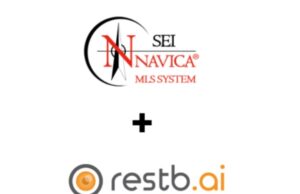National Housing Conference offers guidance to workers impacted by government shutdown on housing payments
Washington, D.C. – RealEstateRama – David M. Dworkin, President and CEO of the National Housing Conference (NHC), today issued the following statement regarding the federal government shutdown and its impact on housing stability for federal workers, contractors, borrowers, and families living in federally assisted housing:
“As the government shutdown progresses, hundreds of thousands of federal employees and millions of Americans who rely on government services face growing financial uncertainty. NHC is committed to providing clear and accurate information that helps families navigate the uncertainty. We are deeply concerned about the ability of workers and families to stay current on their rent and mortgage. Housing is the foundation of financial security, and we want to ensure those impacted by the shutdown have clear guidance on the steps they should take to protect themselves.”
Guidance for households affected by the shutdown
- Pay this month’s rent or mortgage. Even in times of uncertainty, making current payments helps avoid compounding financial strain.
- If the shutdown continues into November and you cannot make your next month’s payment, immediately contact your mortgage lender or landlord. Let them know about your situation and request assistance or flexibility. Open and early communication is essential.
- Families in HUD or USDA-assisted housing, or receiving rental assistance through HUD or USDA programs, will continue to have their rental payments covered through November, according to the National Low Income Housing Coalition.
- Navy Federal Credit Union’s Paycheck Assistance Program offers a 0% APR loan to eligible federal employees or contractors impacted by the shutdown. They can receive a loan amount based on their monthly pay.
- The Congressional Federal Credit Union is offering a suite of “stability assistance programs,” which includes “furlough solutions,” a 0% APR relief line of credit during a 60 day period, and then 4% after with fixed monthly payments for 36 months. They also offer deferred payments on loans, transition loans, and other services.
- PenFed Credit Union is also offering furlough assistance during the shutdown. This includes no interest loans equal to your payroll direct deposit, skipping a payment, and home loan hardship assistance including deferring payments, forbearance plans, loan modifications, and more.
For households who cannot pay their mortgage, Fannie Mae and Freddie Mac have directed servicers to assist borrowers affected by the shutdown, reminding them that they are authorized to offer forbearance plans when needed. Furthermore, for borrowers closing on a mortgage and home purchase during a shutdown, both Fannie Mae and Freddie Mac offer certain exemptions related to employment verification if lenders are unable to receive verification due to the shutdown.
“Communication is the most important tool renters and homeowners have right now,” said Dworkin. “We encourage all those affected to be proactive with their lenders and landlords. While this shutdown is deeply disruptive, no one should lose their home because of a crisis they did not cause.”
Potential impacts based on previous shutdowns
HUD’s 2025 contingency plan lays out excepted activities and potential impacts. It notes that while many activities will technically continue during a shutdown, such as loan processing or deal approvals, reduced staffing and other resource constraints could lead to delays.
Loan closing for FHA single-family loans should not be impacted in most cases. However, FHA has said it could not respond to or process most correspondence. FHA has also indicated it cannot endorse Home Equity Conversion Mortgages or insure Title I loans during a shutdown.
Ginnie Mae will continue to perform all functions necessary to ensure that there is not a disruption in the market during a potential lapse in appropriations. These functions include granting of commitment authority, support for continued issuance of Ginnie Mae-guaranteed Mortgage-Backed Securities (MBS) (including related PIIT pools) and Real Estate Mortgage Investment Conduits (REMICs) and taking all actions necessary to ensure timely payment of principal and interest to investors. Single-family and multifamily loans will continue to remain eligible for securitization so long as they meet requirements for insurance/guaranty of the insuring/guaranteeing agency when they are pooled and are in the process of being insured or guaranteed.
In public housing and voucher programs, funding previously obligated has generally been available for drawdown, but additional reviews or emergency actions may be unavailable or delayed. USDA contingency plans for Rural Development have also noted that foreclosure-related activities may continue under “excepted” staff, and that rental assistance payments could be delayed if a shutdown extends beyond a month.
Veterans relying on VA housing benefits should expect them to continue, though previous VA guidance has been less detailed about the potential for processing delays.
###
About the National Housing Conference (NHC): Founded in 1931, the National Housing Conference is the oldest and broadest housing coalition in America. NHC is a diverse continuum of affordable housing stakeholders who convene and collaborate through dialogue, advocacy, research, and education, to develop equitable solutions that serve our common interest—an America where everyone is able to live in a quality, affordable home in a thriving community. Politically diverse and nonpartisan, NHC is a 501(c)3 nonprofit organization. To learn more about NHC, visit www.nhc.org.
Contact:
Kara Beigay
202-466-2121 ext. 284












